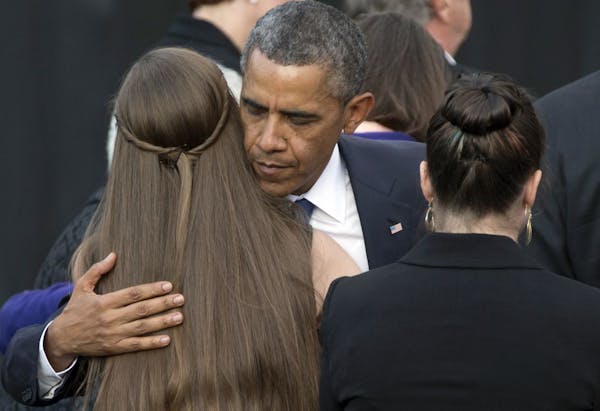Organized, clean, calm — those are not words I would use to describe most of Nairobi, Kenya. But for Kenyan citizens, expatriates and international volunteers, Westgate shopping mall provided one safe place to escape the constant chaos of the capital's streets.
That all changed over the weekend, when the global community watched in horror as thousands of shoppers came under attack by terrorists of the militant group Al-Shabab. As I wrote this article in response, dozens of hostages were being held at the mall, with scores dead and the death toll still mounting.
Kenya is no stranger to unpredictable and tragic events. From large-scale accidents such as a Nairobi airport fire in August, to the frequent grenade attacks in capital suburbs, to a flawed presidential election that nearly imploded the nation from 2007 to 2008, I have watched, both in Kenya and from afar, as Kenyans have struggled with issues of insecurity.
When I first went to Kenya in 2007, I was enamored by the raw energy surging through the country. The aroma of meat sausage and samosas mixing with the smell of burning tires and petrol; the sounds of blaring rap music spilling from public matatu buses, the colors of traditional cloth kanga wraps worn by many Kenyan women. My sense of all things familiar and Western quickly disappeared, and I soon fell in love with Kenya.
Since then, I have spent summers working in a rural village with the Kenya Red Cross Society. My peers at the Red Cross are some of the strongest and proudest people I've ever known. Many of them have grown up and raised their own children in almost impossible circumstances. But more than showing their valiant response to immensely unfair situations, they have taught me that life is, in its clearest form, unpredictable, exhausting, frustrating and sometimes heartbreaking.
That heartbreak could be no more intense than during an event like the Westgate terrorist attack. Though I feel blessed to be able to account for all of my close friends in Nairobi, I know that some of my peers have loved ones who are still missing, including one friend who was notified that his coworker, Ravindra (Ravi) Ramrattan, was shot and killed during the attack. I met Ravi at an expatriate gathering near the mall last summer.
The weekend's attack underscores the complex situation Kenyan leaders and citizens face and will continue to face because of terrorist groups like Al-Shabab. Neither of the available options — of continuing attacks on the terrorist group or negotiating with Al-Shabab in order to find respite from violence — will ultimately end in peace. And neither option promises that innocent lives will be spared.
But one thing is certain, albeit unpleasant: If Kenya fails to act, the country and its people will lose the businesses and the people who are keeping much of the nation afloat. Even though investors, tourists and volunteers know that Kenya is the hub of the region, if their safety is compromised, they will choose other countries to invest in, other countries in which to take safaris, and other places to send aid.
As a Red Cross peer told me Sunday morning, the Westgate terror attack is a wake-up call for Kenyans to unite during their darkest moments. One people, one nation, he said.
That statement brings to mind a Swahili prayer that is often printed on the kanga cloth Kenyan women wrap around their waists. The prayer says "Ewe Mola tuepushe na mahasidi," meaning "O Lord, save us from the evil ones." It is recited at the beginning of a difficult period, when, Kenyans say, the vultures are circling.
"Ewe Mola tuepushe na mahasidi," my friends. May you find peace.
--------------------
Kathryn G. Nelson is a freelance journalist from Minneapolis and founder of the Nafula Foundation, a nonprofit organization based in Western Kenya. She has spent four summers living in rural Kenya working for the Kenya Red Cross Society and other nonprofits, and plans on returning to Kenya soon.
Protect kids online

Here's how I'd broadly frame the environment that led to my firing as a teacher
Get rid of Minnesota's precinct caucuses, go to primary elections up and down the ballot


